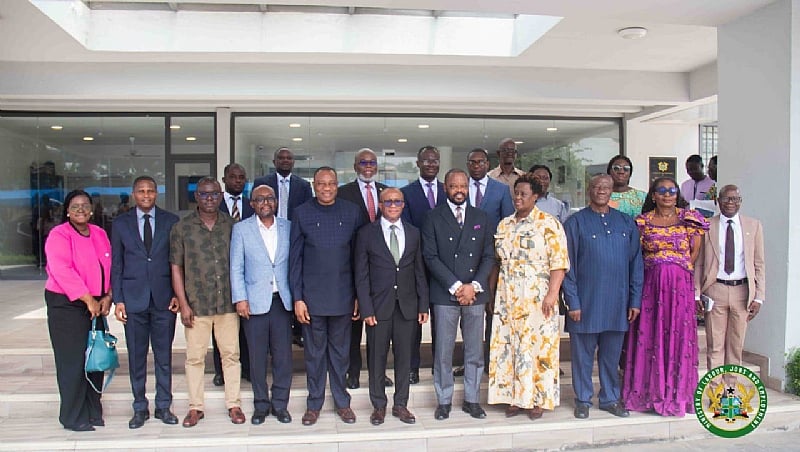The National Pensions Regulatory Authority (NPRA) in Ghana has embarked on a new chapter with the inauguration of its fifth governing board, tasked with navigating the complexities of the current pensions landscape and expanding coverage to the informal sector. This transition comes at a crucial juncture for the Ghanaian pensions industry, marked by the challenges posed by the Domestic Debt Exchange Programme (DDEP) and the pressing need to ensure retirement security for all workers, especially those in the informal sector. The Minister for Labour, Jobs and Employment, Dr. Abdul-Rashid Hassan Pelpuo, emphasized the board’s pivotal role in shaping the future of pensions and urged them to prioritize innovative solutions to strengthen the sector.
The Minister acknowledged the significant impact of the DDEP on pension fund investments, highlighting the need for a comprehensive overhaul of the regulatory framework to restore stability and sustainability to the pensions industry. He outlined several key interventions under the government’s Resetting Agenda, including a review of legislative and regulatory frameworks to provide support for workers facing job loss due to unforeseen circumstances such as natural disasters. Furthermore, the government is exploring the establishment of a Mortgage Assistance Fund to facilitate access to mortgage loans for long-term pension contributors, aiming to enhance the tangible benefits of consistent pension contributions.
Central to the government’s strategy is the expansion of pension coverage to the informal sector, a significant portion of the Ghanaian workforce often excluded from formal pension schemes. Dr. Pelpuo stressed the importance of the Mo-Ne-Yo Initiative, designed to promote and facilitate special pension schemes tailored to the specific needs and circumstances of informal sector workers. He urged the NPRA board to prioritize the implementation of this initiative and other measures designed to incentivize participation in pension schemes across all sectors.
The newly appointed Board Chairman, Mr. Ebenezer Ofori Agbettor, echoed the Minister’s sentiments, acknowledging the significant challenges and opportunities facing the pensions sector. He emphasized the board’s commitment to upholding the principles of transparency and good governance in all its operations. Mr. Agbettor underlined the importance of engaging the informal sector and enhancing public education on pensions to foster a greater understanding of its benefits and encourage wider participation. He advocated for a collaborative approach involving all stakeholders, including government agencies, labour unions, and the private sector, recognizing the collective effort required to achieve the board’s ambitious goals.
The NPRA’s mandate is to regulate and supervise the operations of pension schemes in Ghana, ensuring compliance with relevant laws and regulations. The board’s focus on expanding coverage to the informal sector reflects a growing awareness of the need to provide social security for all workers, regardless of their employment status. This initiative aligns with global trends in pension reform, which increasingly recognize the vulnerability of informal sector workers and the importance of extending social protection mechanisms to cover this demographic. The informal sector often faces precarious working conditions, lacks access to formal social security benefits, and is more susceptible to economic shocks. Therefore, integrating them into the pensions system is crucial for promoting inclusive growth and reducing poverty.
The challenges facing the Ghanaian pensions sector are multifaceted, requiring a comprehensive and strategic approach to address them effectively. The DDEP’s impact on pension funds necessitates a thorough review of the regulatory framework to safeguard investments and maintain the long-term viability of the system. Furthermore, the focus on the informal sector presents unique challenges, including the need for tailored pension products, flexible contribution mechanisms, and effective outreach strategies to overcome awareness and accessibility barriers. The NPRA board’s success will depend on its ability to navigate these complexities, build consensus among stakeholders, and implement innovative solutions that cater to the diverse needs of the Ghanaian workforce. The government’s support and commitment to strengthening the pensions sector will play a vital role in facilitating the board’s work and ensuring the long-term sustainability of the pension system.


